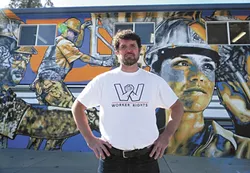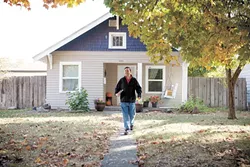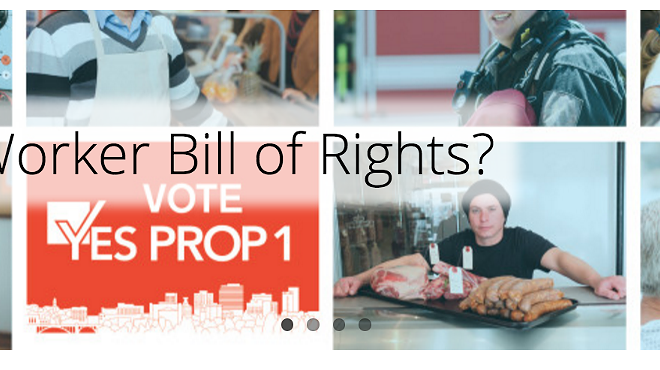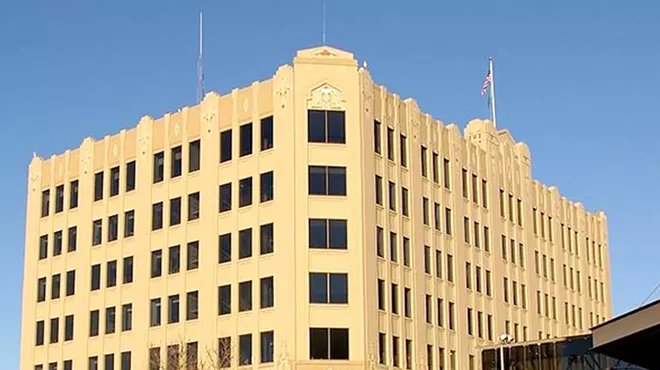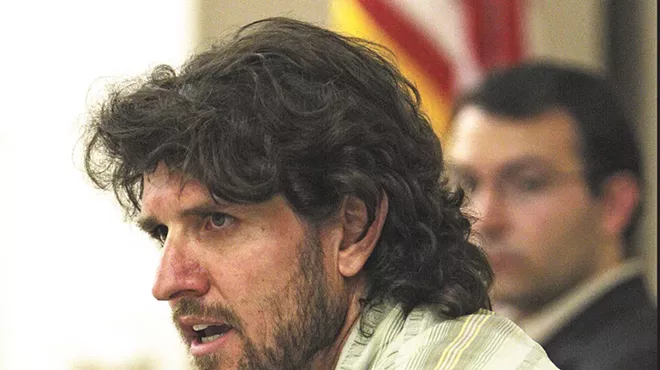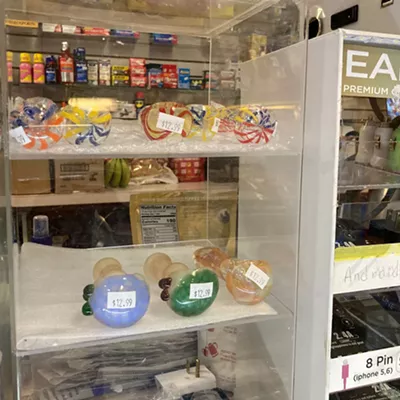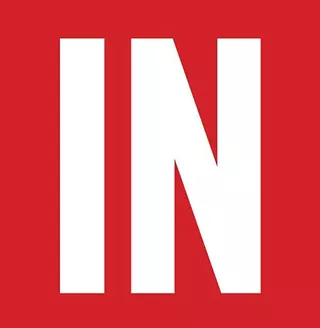Friday, December 18, 2015
Envision Spokane cries foul after council president proposes revamp for changing the city's charter
In the aftermath of having one of its sweeping ballot measures voted down for the third time, Envision Spokane is worried that city council, acting on behalf of business interests, is considering changes to Spokane’s initiative process for charter amendments that the group says is intended to make it harder for them to put their proposals before voters in the future.
Council President Ben Stuckart, who was decisively re-elected last month with the support of the right-leaning business community, has proposed an update to Spokane’s initiative process that he says will bring it more in line with the rest of the state. But Kai Huschke, Envision campaign coordinator, says that corporate interests are “puppeting” Stuckart in an attempt to “interfere with citizen rights.”
“This is completely politically motivated,” he says. “It has nothing to do with defending the initiative process. It’s 100 percent politically motivated.”
Under the current process, for an initiative petition to qualify for the next general election it needs signatures equal to at least 5 percent of the actual votes cast in the last general election. To qualify its Worker Bill of Rights for November’s general election, Envision had to collect 2,477 valid signatures.
The measure would have granted extensive new rights and protections to workers while also seeking to restrain corporate rights. Worried that it would cripple the city’s economy and invite costly lawsuits, the business community outspent Envision by over eight-fold and convinced 62 percent of voters to turn it down.
Michael Cathcart, lobbyist for the Spokane Home Builders Association who lead the campaign against the most recent Envision proposal, says that after the last election he came to the conclusion that it’s far too easy to qualify ballot initiatives in Spokane. He says it’s especially a problem for initiatives (like those proposed by Envision) that seek to change the city charter, essentially Spokane’s constitution.
After researching the issue, he found that Spokane’s 5 percent threshold to qualify ballot measure was the lowest in the state. Other cities in the state, he says, have a 10-20 percent threshold.
“When you have a low threshold, that’s not democracy in action,” he says. Cathcart says that a small group of people can qualify an initiative with relative ease and write a ballot title that makes it sound appealing. But, he says, these initiatives could have sweeping and unexpected consequences and there should be a higher threshold to qualify them. Earlier this month, Cathcart –– along with representatives from Avista Greater Spokane Inc. and the Building Owners and Managers Association –– met with Stuckart and convinced him to craft a proposal to increase the threshold to qualify citizen initiatives.
Huschke says the change is unnecessary because citizen-driven charter amendments have been rare and it’s been decades since one has passed. The current proposal, he says, is the latest in a string of attempts to alter the city’s initiative process in recent years that he says have been clearly aimed at Envision, which has been the only group to qualify initiatives in 2009, 2011 and 2015.
Stuckart says that, so far, the council has been receptive to changing the process to changing the city charter. Although a final proposal is still being developed, it would include a reduction of the 365-day time period citizens have to gather the signatures to 180 days and raise the threshold to 20 percent (although Stuckart says he’s open to a lower number).
When asked if the proposal was brought on behalf of business groups, Stuckart says, “Absolutely, they brought it to my attention, and they have a point.”
Stuckart bristles at Envision’s contention he’s a corporate puppet and says that he listens to perspectives from across the political spectrum.
“We have real world situations we are trying to fix and for [Envision] to take this so personally and to lash at me personally is missing the point of the policies,” he says.
Councilman Mike Fagan, a conservative member of city council who has run anti-tax statewide ballot initiatives with Tim Eyman, says he hasn’t made any final decisions on the proposal, which will ultimately need to be approved by voters. Although he’s an opponent of Envision, he still says he’s reluctant to raise the threshold.
“Well you know, the bottom line for me is this: The initiative process is the regular guy’s process for redressing their grievances to the government,” he says. “If you are going to make it further restrictive you better have some damn good reasons for making it restrictive.”
This article has been updated to clarify the proposal is specifically for charter amendments
Tags: Kai Huschke , Envision Spokane , Ben Stuckart , Michael Cathcart , Spokane Home Builders Association , News , Image

